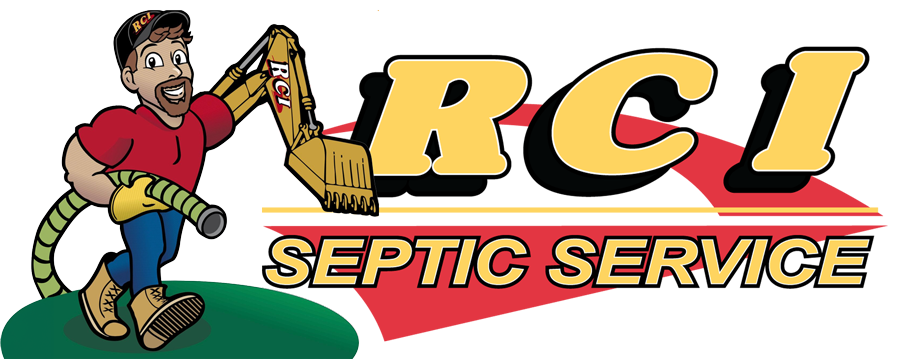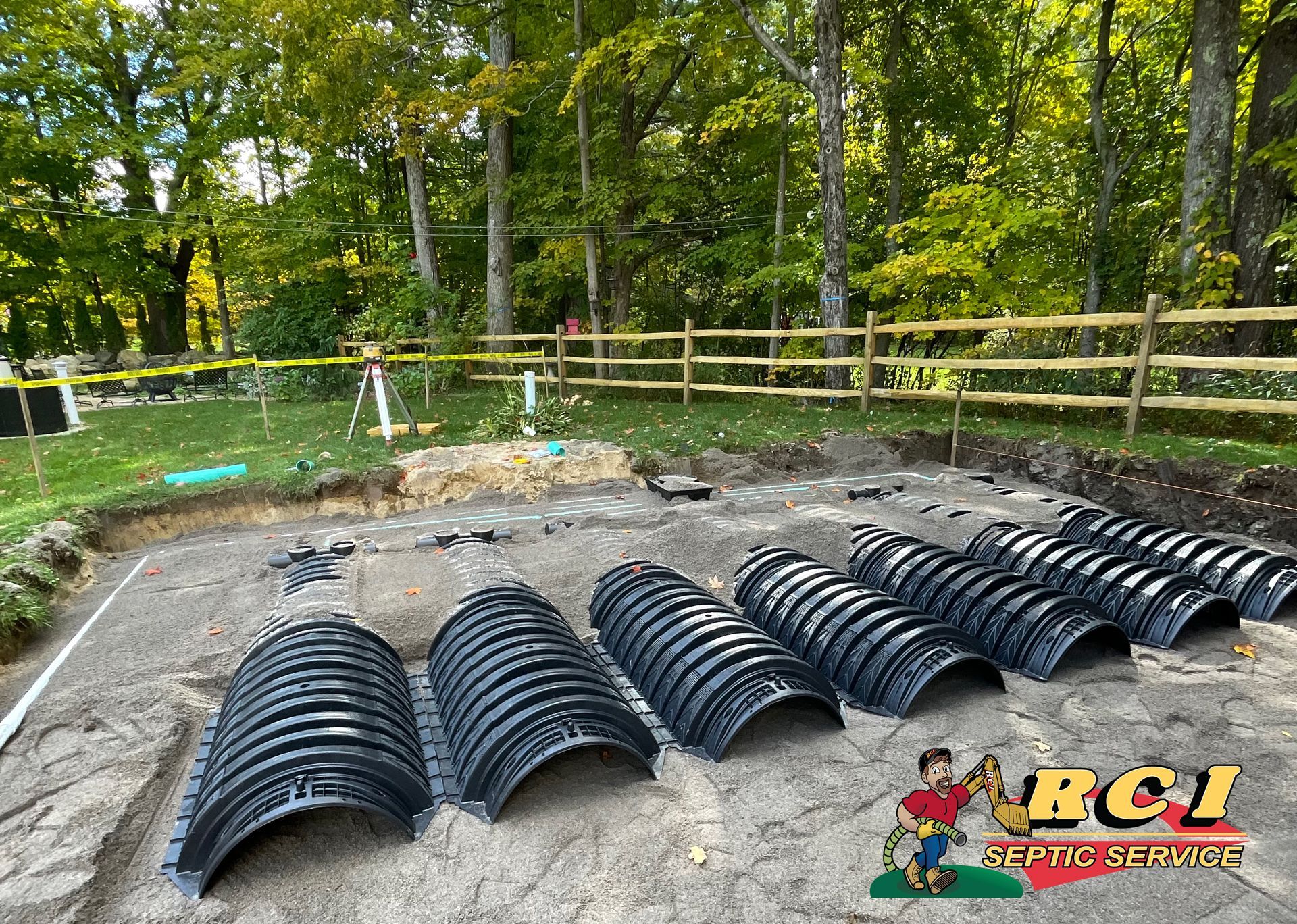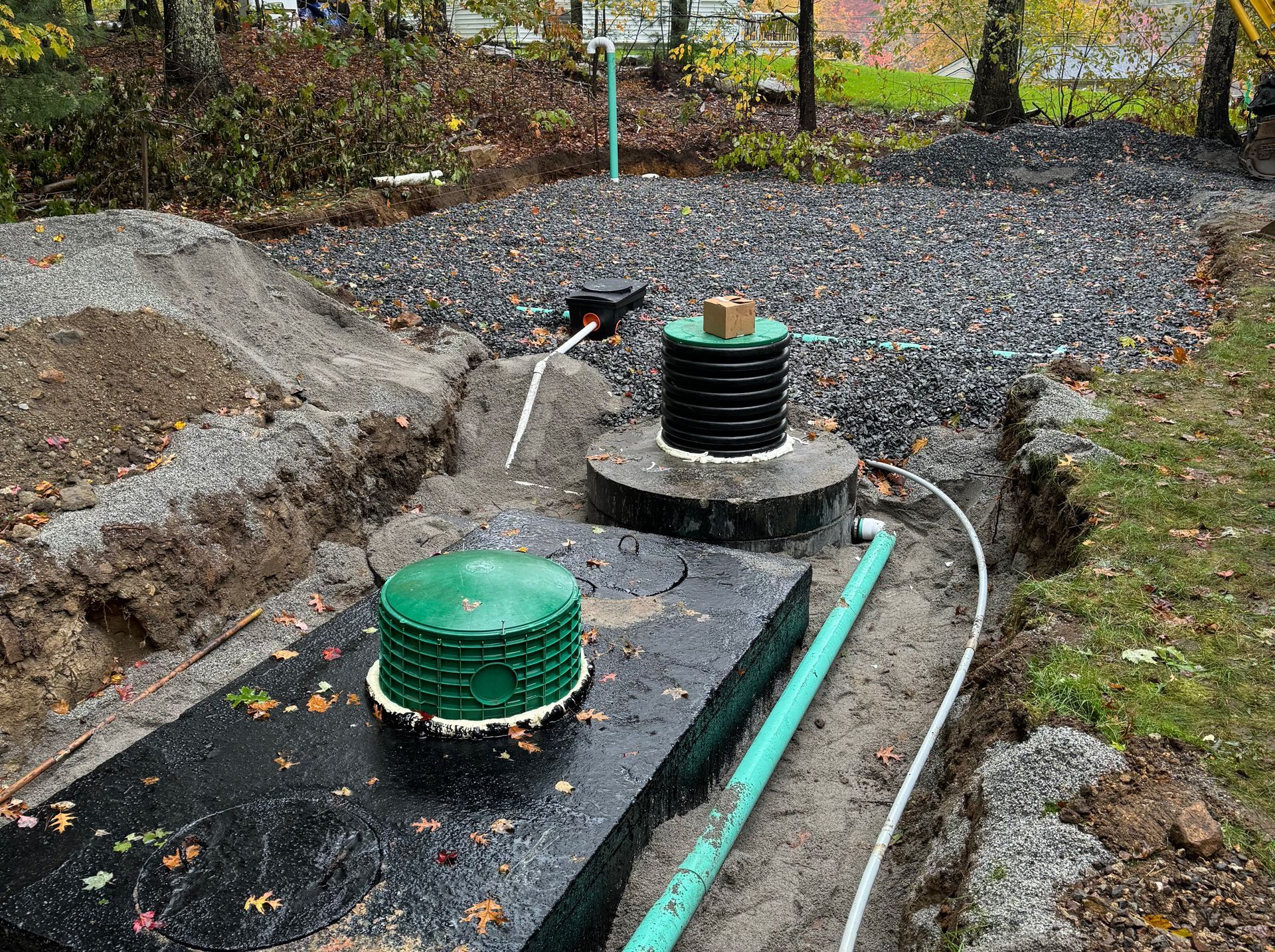Top Summer Septic Maintenance Tips to Keep Your System Healthy
Looking for summer septic maintenance tips? In summer, increased water use and hot weather can strain your septic system. This guide provides practical advice to maintain it during the busy months. You’ll learn essential tips, how to manage water usage, and recognize early warning signs of issues.
Key Takeaways
- Increased summer activities, such as gardening and hosting guests, lead to higher water usage which can overwhelm septic systems, necessitating proactive maintenance.
- Regular inspections and timely pumping every 3 to 5 years are crucial for preventing sludge buildup and system failures, while monitoring water consumption helps mitigate overloads.
- Recognizing early signs of septic issues, such as foul odors and slow drainage, is essential for prompt intervention and avoiding costly repairs, highlighting the importance of professional septic services.
Understanding the Impact of Summer on Your Septic System

Summer is a season of increased activity, and this extends to your septic system. With more guests visiting, higher water usage for gardening, lawn watering, and even filling pools, your septic system is under additional strain. These activities, combined with warmer weather, can lead to accelerated bacterial activity and potential disruptions without proper septic system maintenance.
Weather changes, such as hot and dry conditions, can further challenge your septic system. Proactive maintenance ensures your system runs smoothly throughout the summer months. Understanding the summer impact on your septic tank and taking preventive measures can help avoid costly repairs, keeping your system functional and efficient.
Increased Water Usage
The summer months often lead to increased water usage due to activities like gardening, lawn watering, and hosting gatherings. This surge in water consumption can overwhelm your septic system, potentially leading to backups or overflow. For instance, hosting more guests means more laundry loads, frequent showers, and additional strain on your plumbing system.
Managing increased water usage involves spreading out laundry loads throughout the week and conserving water where possible. Simple actions like taking shorter showers, promptly fixing leaks, and installing low-flow fixtures can significantly reduce water strain on your septic system.
Monitoring and managing your water consumption helps maintain a healthy septic system during the busy summer months.
Soil Conditions and Drain Field Health
Summer’s hot and dry weather can lead to compacted soil around your septic system, hindering its ability to properly absorb and treat wastewater. This compaction can result in backups or failures if not addressed. Regularly checking the soil conditions around your septic tank prevents these issues.
Maintaining the health of your drain field is equally important. Dry and compacted soil can interfere with wastewater absorption, potentially leading to septic problems. Monitoring and managing soil conditions around your drain field ensures your septic system runs smoothly and treats wastewater effectively.
Essential Summer Maintenance Tips for a Functional Septic System
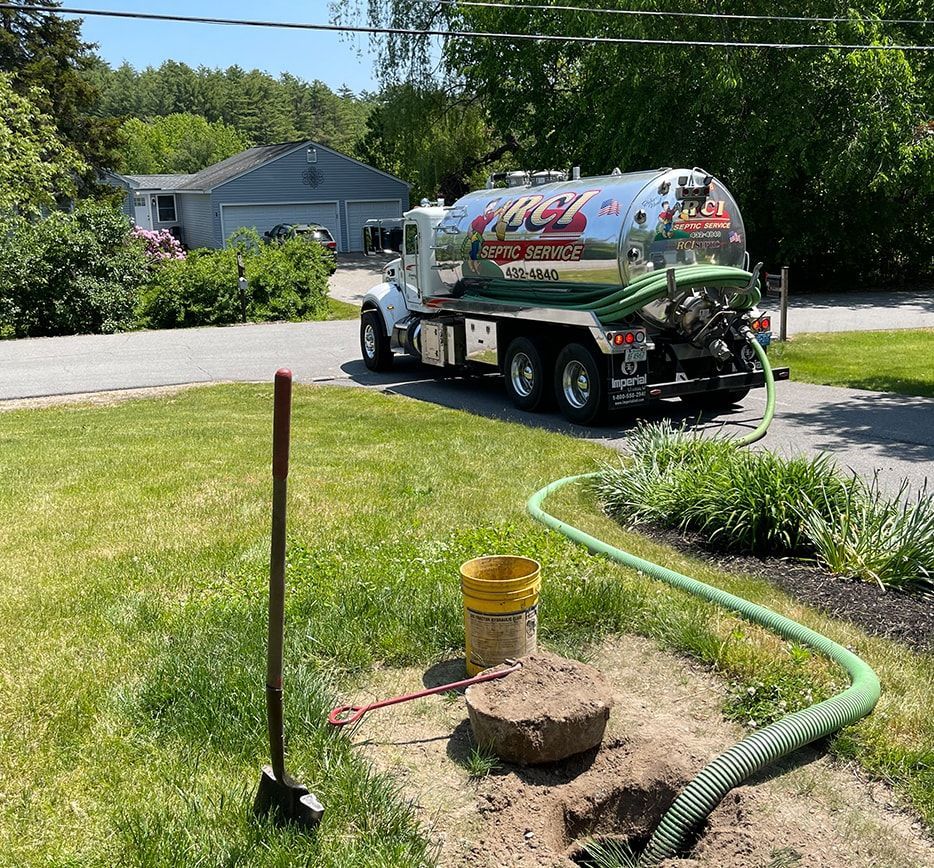
To keep your septic system running smoothly during the summer, regular maintenance is crucial. Proactive measures can save time and money by preventing costly repairs or replacements. Proper maintenance and water consumption monitoring are vital to avoid septic backups and ensure your system remains functional.
This section provides essential tips to help you maintain a healthy septic system throughout the summer. Following these guidelines reduces the risk of septic problems and keeps your septic system in top condition. Let’s explore these maintenance tips in detail.
Monitor Water Consumption
Monitoring water consumption is one of the most effective ways to maintain your septic system during summer. Spreading out the use of water-intensive appliances like washing machines and dishwashers can help reduce the strain on your septic system. Staggering these activities ensures that your system isn’t overwhelmed by excessive water usage at once.
Additionally, taking steps to conserve water is essential. Simple measures such as taking shorter showers, fixing leaks promptly, and installing water-efficient fixtures like low-flow toilets can significantly reduce water usage. Being mindful of your water consumption helps keep your septic system running smoothly and avoids potential overloads.
Regular Inspections and Pumping
Inspections and pumping are critical components of proper septic system maintenance. Septic tanks should generally be septic tank pumped every 3 to 5 years to prevent sludge buildup that can lead to backups and clogs. Neglecting regular maintenance can result in severe septic problems, requiring costly repairs.
Regular inspections help identify potential issues before they escalate. Professional inspections detect early signs of failure and ensure your septic system functions correctly. Timely pumping and regular maintenance keep your septic system healthy and avoid unexpected problems.
Protecting the Drain Field
Maintaining your drain field is a vital aspect of septic system health. Avoid driving or parking vehicles over the septic system, as this can compact the soil and hinder the necessary percolation for effective wastewater treatment. Heavy items or vehicles placed on the drain field can also damage the system, leading to potential failures.
Homeowners should also be cautious about planting trees or shrubs near the drainage field. Root systems can infiltrate and damage the drain field, compromising its functionality.
These precautions help maintain the effectiveness of your drain field and ensure efficient wastewater treatment.
Recognizing Early Signs of Septic Problems
Recognizing early signs of septic problems prevents more severe issues down the line. Indicators like foul odors, slow drainage, and pooling water signal underlying septic system issues requiring immediate attention. Awareness and prompt action can save you from costly repairs and extensive damage.
In this section, we will delve into the early warning signs that your septic system may be in trouble. By understanding these signs, you can take proactive steps to maintain a functional septic system and avoid potential system failure.
Foul Odors
The presence of foul odors around your septic area is a clear warning that something may be wrong with your system. These unpleasant smells often resemble rotten eggs and can indicate the buildup of harmful gases due to septic issues. Strong sewer smells near your drains or in your yard may indicate clogs or a full septic tank requiring immediate attention.
Promptly addressing foul odors prevents further complications. These smells can be a precursor to more severe problems, such as backups or system failures. Detecting unpleasant odors necessitates seeking professional help to diagnose and resolve the issue.
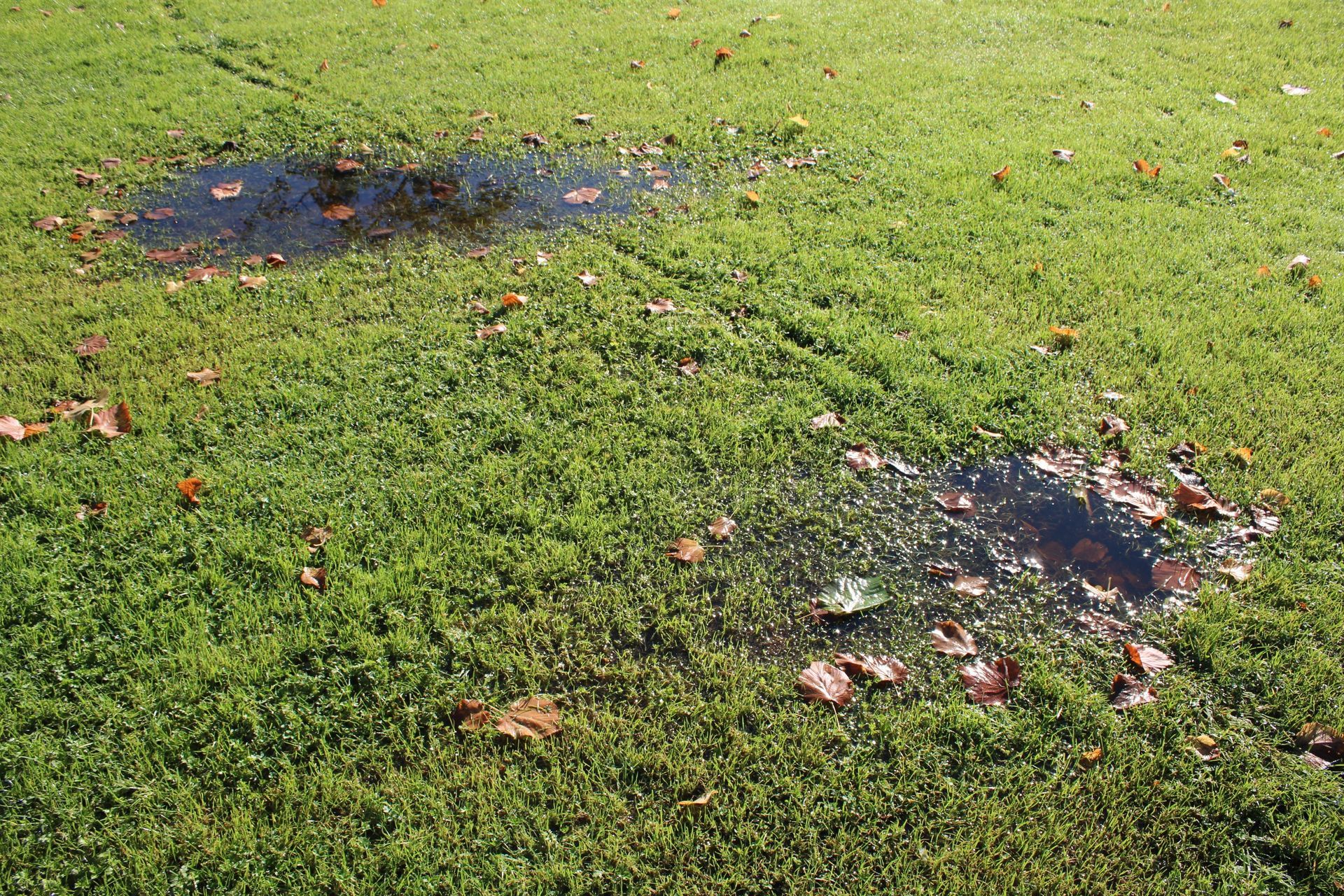
Standing Water and Slow Drains
Pooling water around the drain field or septic area often signals a malfunctioning system needing immediate attention. These damp conditions can indicate an overloaded or failing drain field, which can lead to more severe septic problems if not addressed promptly. Slow drains and standing water are critical signs that your septic system may be experiencing blockages or failures.
Ignoring these signs results in extensive damage and costly repairs. Prompt attention to poor drainage and standing water prevents system failures and maintains your septic system’s health. Observing these warning signs necessitates consulting a septic professional to diagnose and fix the issue.
The Importance of Professional Septic Services
Professional services play a crucial role in ensuring your septic system remains functional and efficient. Regular inspections and timely maintenance by a septic professional significantly enhance the longevity and performance of your septic system. Professionals have the expertise and tools to address issues that homeowners might not be equipped to handle.
Ignoring potential issues or attempting DIY fixes can lead to severe problems, health risks, and lower property value due to untreated sewage contamination. Engaging professional services ensures proper maintenance and prompt resolution of any issues.
Proper Diagnosis and Repairs
Proper diagnosis and timely repairs maintain a healthy septic system. Professional septic systems technicians use specialized tools and techniques to accurately diagnose and address issues. This expertise allows for quicker problem resolution, minimizing disruption and preventing further damage.
Enlisting a septic professional ensures swift diagnosis and durable repairs. Expert regular inspections and maintenance prevent system failures and costly repairs, keeping your septic system running smoothly and efficiently. Additionally, utilizing a septic service can help maintain optimal performance.
Suspecting something wrong with your failing septic system necessitates seeking professional assistance.
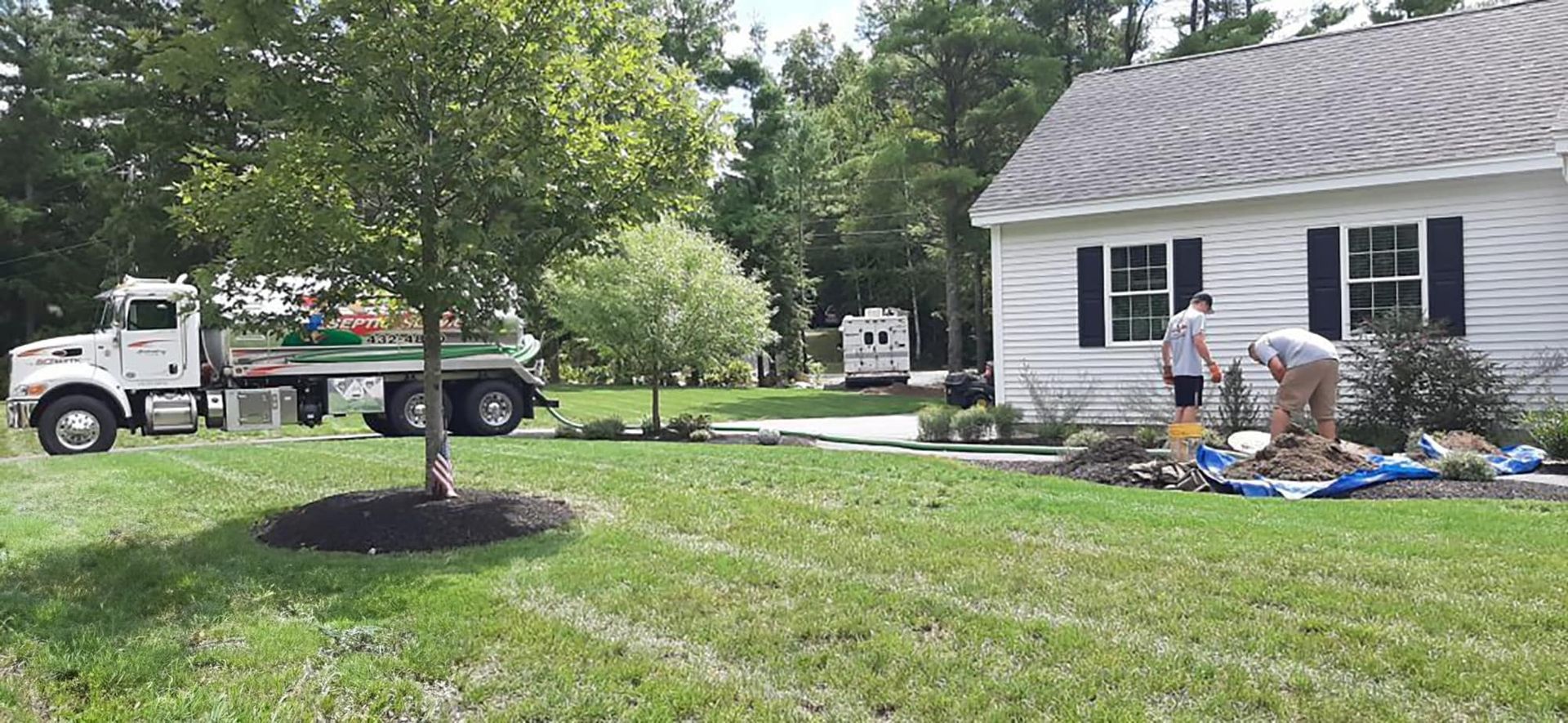
Long-term Care for Your Septic System
Ongoing attention beyond the summer months is required to maintain your septic system. Year-round septic system maintenance ensures functionality and prevents potential breakdowns. A maintenance record helps track inspections and repairs, ensuring timely servicing.
This section provides tips for long-term care, emphasizing the importance of regular inspections and proper maintenance throughout the year. By following these guidelines, you can keep your septic system healthy and avoid costly repairs.
Year-Round Maintenance Tips
Year-round maintenance is crucial for the health of your septic system. Water-efficient fixtures, such as high-efficiency toilets, significantly reduce the amount of water entering the septic system, benefiting its overall health. In cold climates, insulating pipes and the septic tank prevents freezing during winter months.
Regular inspections and timely maintenance keep your septic system running smoothly. Following these year-round maintenance tips ensures the longevity and efficiency of your septic system, preventing potential issues and costly repairs.
Environmental Considerations
Environmental considerations are vital when it comes to septic system maintenance. Biodegradable and eco-friendly products help maintain the bacterial balance in your septic system, reducing environmental impact. Limiting garbage disposals reduces the amount of solid waste entering the septic tank, aiding in maintenance.
Proper septic care protects the environment. It prevents contamination of groundwater and surrounding ecosystems, ensuring efficient operation while minimizing the environmental footprint.
Summary
In conclusion, proper septic system maintenance is crucial, especially during the summer months when increased water usage and changing soil conditions can put additional strain on your system. By monitoring water consumption, scheduling regular inspections and pumping, and protecting your drain field, you can ensure your septic system remains functional and efficient.
Engaging professional septic services for diagnosis, repairs, and ongoing maintenance is essential for preventing severe problems and costly repairs. By following these tips and maintaining a proactive approach, you can keep your septic system healthy and enjoy a worry-free summer and beyond.
Frequently Asked Questions
How often should I pump my septic tank?
To maintain your septic system effectively, we recommend getting your septic tank pumped yearly for households of 5 or more, every 2 years for 3-4, and every 3 years for households of 1-2 people. It is important to get the tank pumped regularly to ensure proper functioning.
What are the signs of a failing septic system?
The signs of a failing septic system typically include foul odors, slow drainage, and pooling water around the septic area, all of which indicate issues that require immediate attention.
Can I plant trees near my drain field?
It is advisable not to plant trees or shrubs near your drain field, as their roots can infiltrate and cause damage to the septic system. Prioritizing the health of your septic system is crucial for its proper functioning.
Why is professional septic service important?
Professional septic service is essential as it guarantees accurate diagnosis and repairs, which significantly extend the longevity and efficiency of your system while averting serious issues and expensive repairs.
How can I reduce water usage to benefit my septic system?
To benefit your septic system, reduce water usage by taking shorter showers, promptly fixing leaks, and installing water-efficient fixtures such as low-flow toilets and showerheads. This will help maintain the system's efficiency and longevity.
